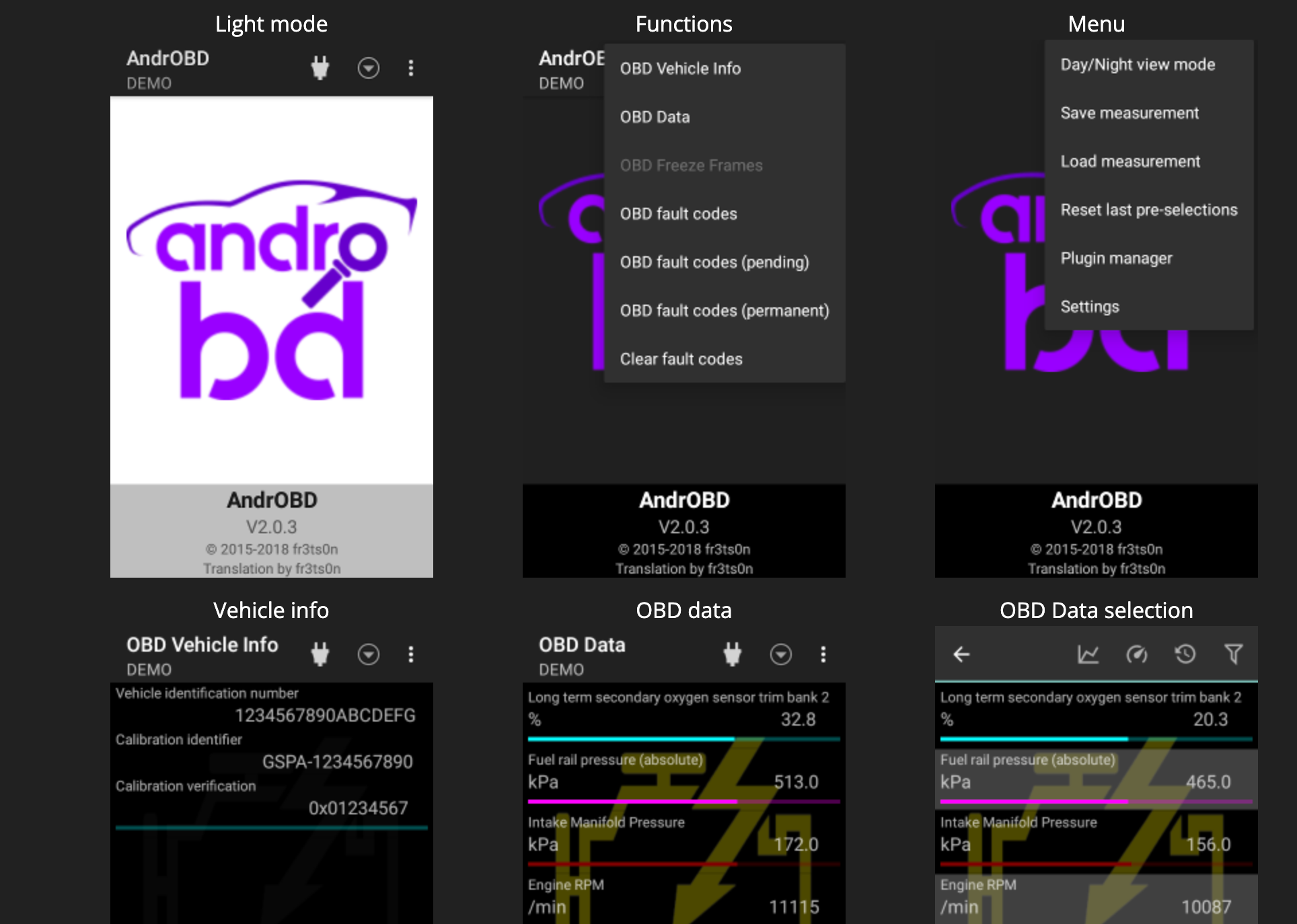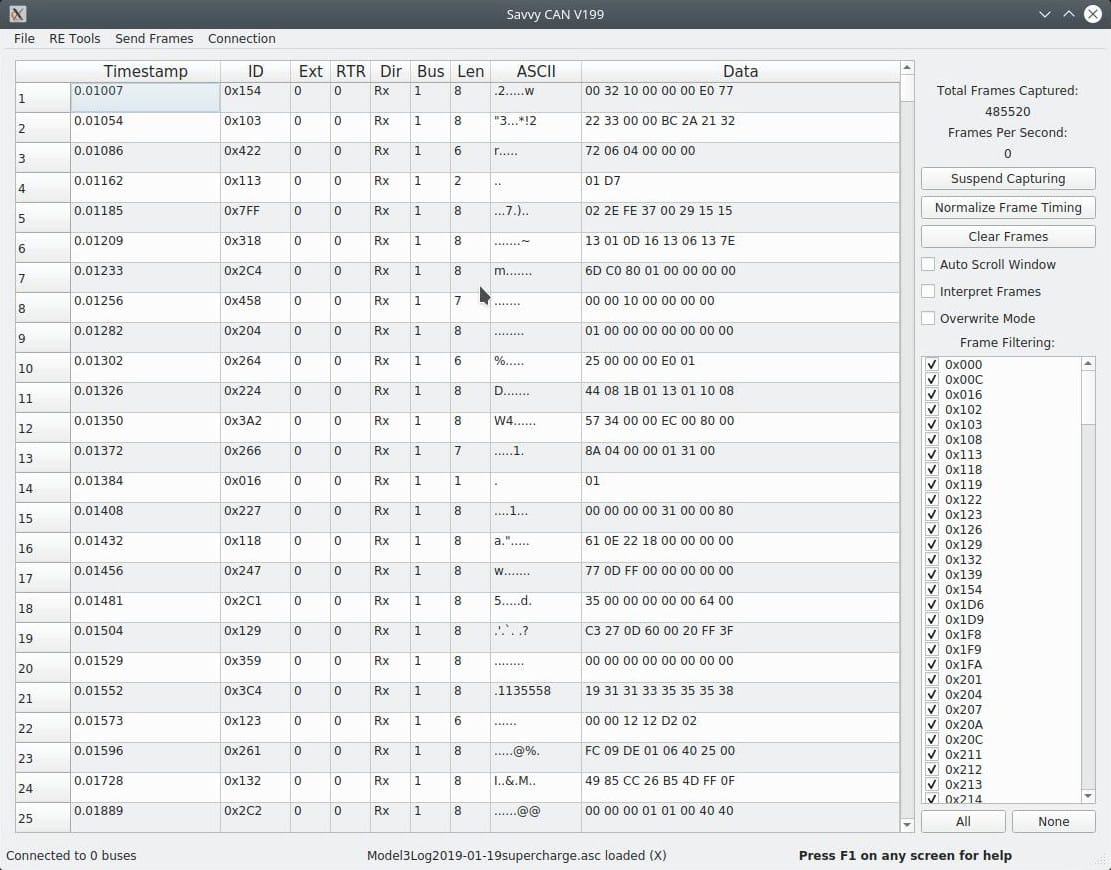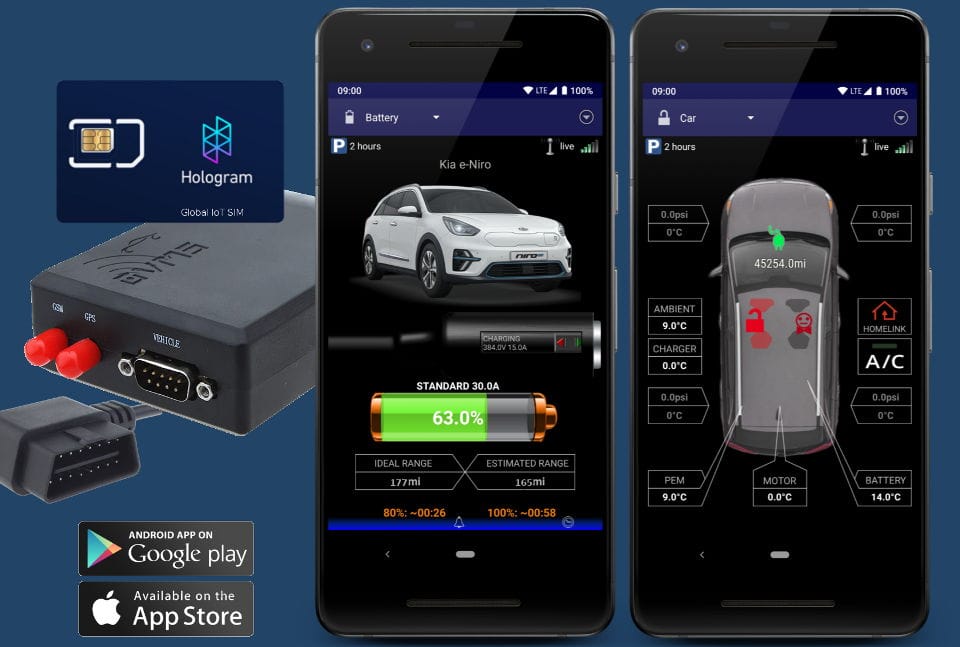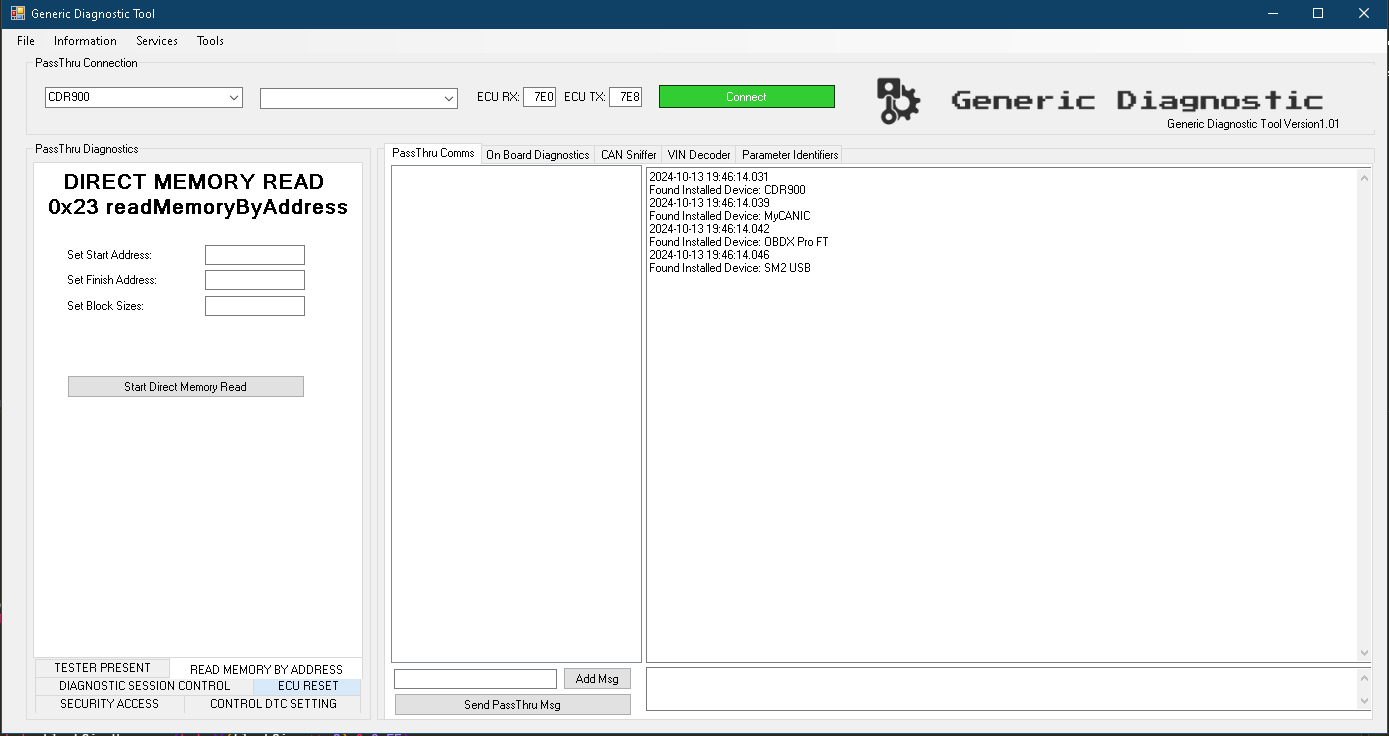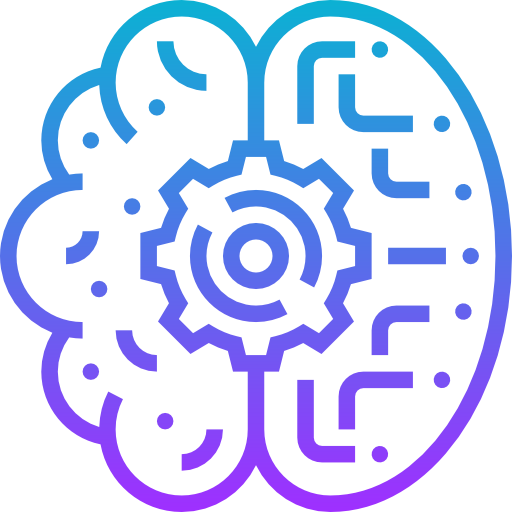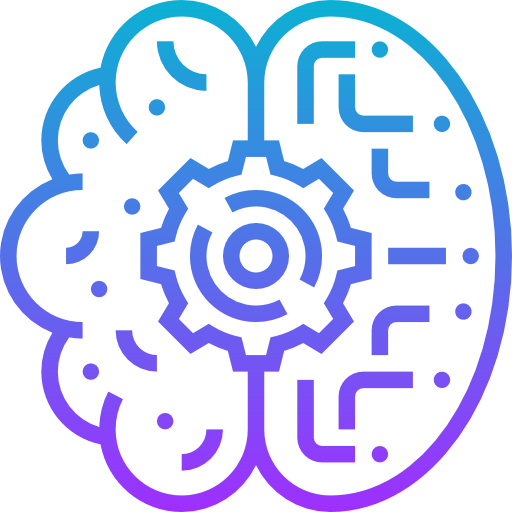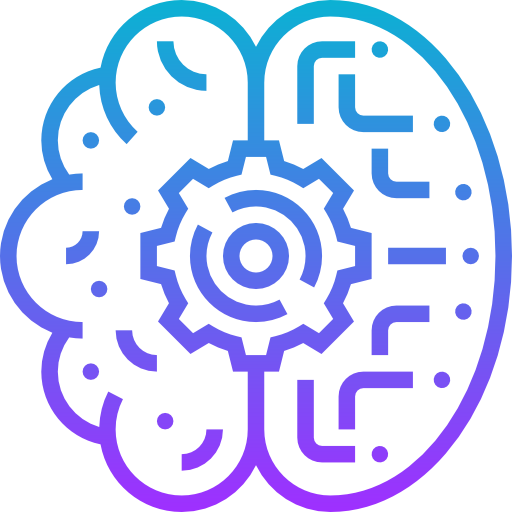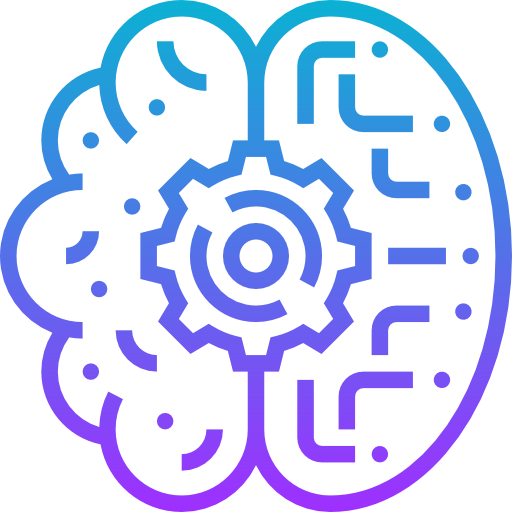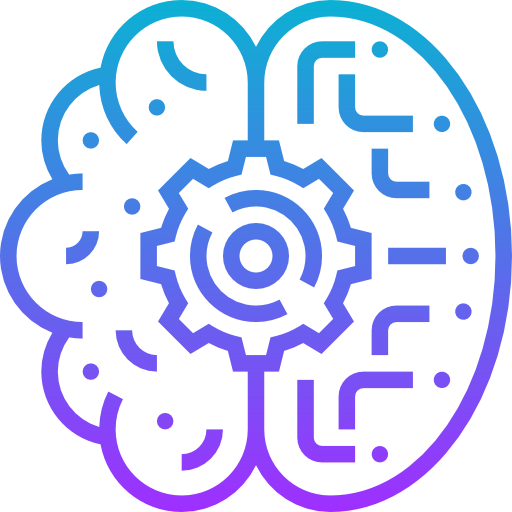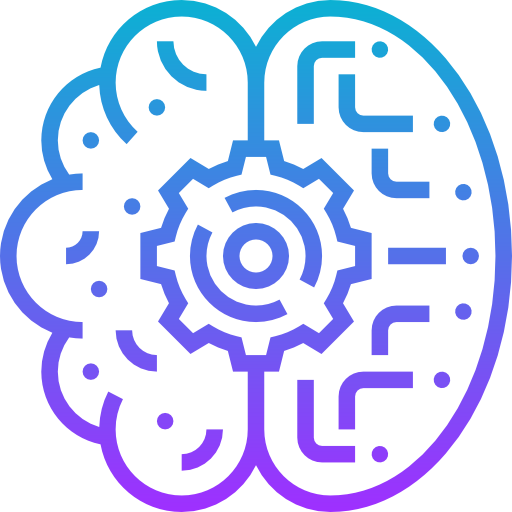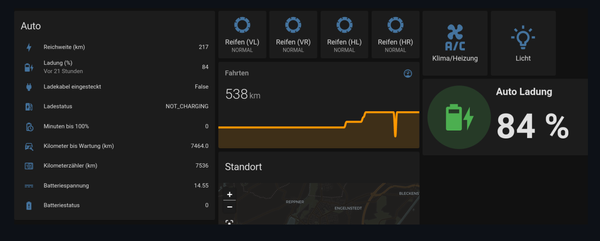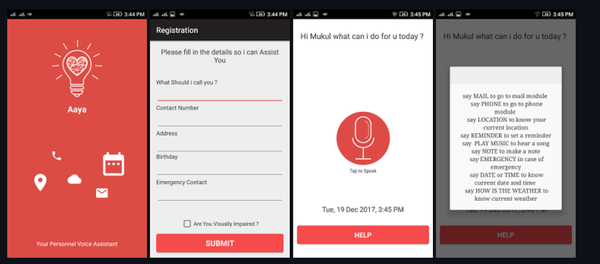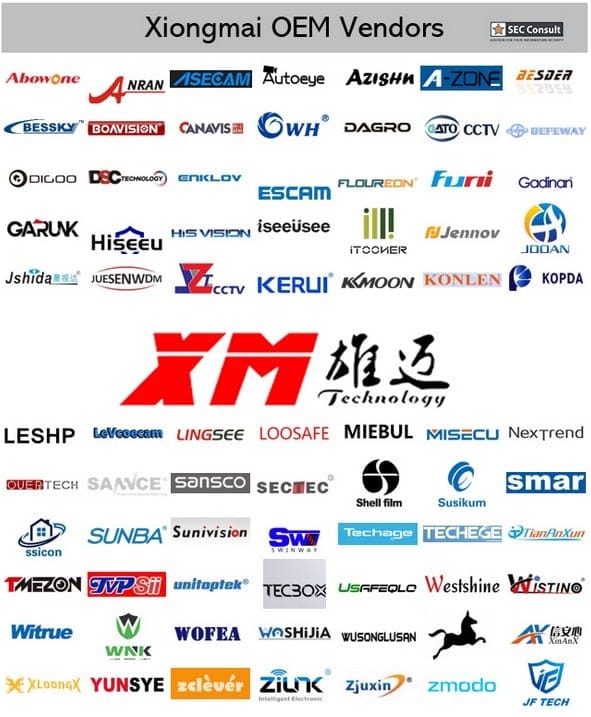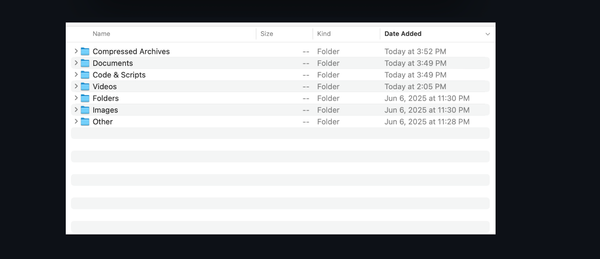23 Open-Source Car Diagnostic Apps, OBD Scanners, and ECU Tools for Hobbyists & Hackers
Discover 23 powerful open-source car diagnostic apps, OBD scanners, and ECU tools every hobbyist and hacker should know. Learn how these free tools can help you monitor, diagnose, and tune your vehicle like a pro, no expensive hardware required!
Table of Content
Sometime ago, I was hired by a firm that sells car diagnostic devices, to help with their workflow, data workflow and such, and somehow they did not have any idea that there are many free and open-source apps exist.
What is a Car Diagnostic Device and Computer, And Why Every Modern Mechanic (and Car Owner) Needs One?
In today's high-tech automotive world, cars are more like computers on wheels than ever before. Beneath the hood, dozens of electronic control units (ECUs) manage everything from engine timing to airbag deployment.
This evolution has made traditional mechanical diagnostics nearly obsolete, replaced by powerful tools known as car diagnostic devices and diagnostic computers .
But what exactly are these tools? What do they do, and who uses them?
What Is a Car Diagnostic Device?
A car diagnostic device , also known as an OBD scanner , vehicle diagnostic tool , or ECU reader , is a specialized electronic device used to communicate with a vehicle’s onboard computer systems.
See, back in the day, if something went wrong with your ride, you could usually figure it out with a wrench, some trial and error, and maybe a decent multimeter. But now? Your car’s basically a rolling data center. Everything from the transmission to the airbags is controlled by software.
Which means if something goes wrong, you can’t just tap it with a hammer and hope for the best, you gotta talk to the car. That’s where diagnostic tools come in.
Most modern vehicles come equipped with an OBD-II (On-Board Diagnostics II) port, usually located under the dashboard. When connected to this port, a diagnostic device can:
- Read and clear error codes
- Monitor real-time sensor data
- Perform system tests
- Adjust or reprogram engine control units (ECUs)
- Enable advanced features such as chip tuning, DPF removal, and EGR disablement
Some devices are compact, handheld scanners ideal for quick checks. Others connect to a laptop or tablet , offering deeper analysis and advanced programming capabilities.
These tools have become essential in diagnosing complex vehicle problems quickly and accurately, saving time, reducing guesswork, and avoiding unnecessary repairs.
What Is a Car Diagnostic Computer?
While a handheld scanner gives you basic access to your car's systems, a diagnostic computer opens the door to much deeper functionality.
A diagnostic computer typically refers to:
- A dedicated laptop or tablet running automotive diagnostic software
- The vehicle’s own ECU (Engine Control Unit), often called the "car computer"
Professionals use powerful tools like:
- VCDS (VAG-COM)
- Autel MaxiSys
- Launch X431
- OBDeleven
- KT-Manager / KT-Suite
- FVDI Alientech
- Kess V2 / K-Tech
- Digiprog III / SuperProg
- XTool
- ANCEL (Check at YEKTEK.com [TURKEY])
- JDiag
These platforms allow users to:
- Perform software updates
- Conduct key coding and immobilizer resets
- Modify engine parameters for performance tuning
- Unlock hidden features in factory firmware
- Remove emissions components like DPF, EGR, and SCR systems
With the right software and hardware, a diagnostic computer becomes a gateway to full vehicle customization and control.
What Are Car Diagnostic Tools Used For?
Car diagnostic tools serve a wide range of functions, from simple error code reading to complex reprogramming.
Here’s how they're commonly used:
1. Error Code Reading & Clearing
When a check engine light comes on, diagnostic tools retrieve specific fault codes (e.g., P0300: Engine Misfire). Once the issue is resolved, the code can be cleared.
2. Real-Time Data Monitoring
Technicians can monitor live data from sensors, including fuel trims, throttle position, coolant temperature, and more, to identify irregularities in real time.
3. ECU Programming / Re-mapping
By modifying the software inside the engine control unit, mechanics can improve fuel efficiency, increase horsepower, or optimize driving characteristics, a process known as chip tuning .
4. Key Coding & Immobilizer Reset
Lost your keys? These tools allow technicians to add or remove car keys from the immobilizer system, making key replacement faster and more secure.
5. DPF, EGR, and SCR Removal
Some users choose to disable emissions components like the Diesel Particulate Filter (DPF), Exhaust Gas Recirculation (EGR), or Selective Catalytic Reduction (SCR) systems, either for performance or repair purposes.
6. Adaptation & Calibration
When replacing parts like throttle bodies, gearboxes, or sensors, diagnostic tools help calibrate new components so they work seamlessly with the rest of the system.
7. Airbag System Diagnostics
These tools test the readiness of airbag systems and can reset crash codes after an accident or part replacement.
8. ABS/ESP/Brake Systems Diagnosis
They also support diagnostics for anti-lock braking systems (ABS) and electronic stability programs (ESP) , ensuring safety-critical systems function correctly.
Who Uses Car Diagnostic Devices?
The audience for these tools is broader than you might expect, ranging from professional mechanics to passionate DIYers.
Automotive Technicians
Used daily in dealerships and repair shops to diagnose and fix complex issues quickly and efficiently.
Car Enthusiasts & Tuners
Performance tuners use diagnostic tools to extract maximum power from engines, unlock hidden features, and optimize fuel efficiency .
Aftermarket Service Providers
From key replacements to ECU reflashes, these professionals rely on diagnostic tools to deliver high-quality service beyond factory limitations.
Vehicle Importers
Imported cars often require adaptation to local standards, diagnostic tools make it possible to convert OBD protocols , update firmware, and ensure compliance.
DIY Mechanics
Thanks to affordable OBD tools and online guides, even amateur mechanics can troubleshoot and repair their own vehicles at home.
The Open-source Car Diagnostics Magic
A while back, I was hired by a company that sells car diagnostic devices to help streamline their workflow, particularly around data management and processing. To my surprise, they had no idea that there are so many free and open-source apps already available for automotive diagnostics.
Why did we write this post?
We wanted to round up all the free, open, hackable, and community-driven diagnostic apps and projects floating around the internet. Stuff that doesn’t need a credit card to try out. Tools that let you peek under the digital hood without breaking the bank. Some are basic code readers, others let you log real-time sensor data, flash firmware, or even simulate ECUs if you're feeling extra nerdy.
Important Note: This list isn’t meant to replace your Snap-on scanner, it’s more like a love letter to the hackers, tinkerers, modders, and curious minds who actually enjoy messing with car code on a Saturday night.
Whether you're trying to fix your daily driver, tune your weekend track beast, or just understand why your coolant temp reads like a microwave oven, there’s probably an open-source tool here that can help.
Here is our top picks:
1- PYOBD
AndrOBD is a free, open-source Android app that connects to your car’s OBD system via ELM327 adapter using Bluetooth, USB, or WiFi. It reads and clears fault codes, monitors live data, and records and exports logs.
It come with a clean interface, day/night mode, dashboard views, and support for freeze frame and vehicle info, it's perfect for DIYers.
The app is originally created by fr3ts0n, it’s completely ad-free and supported by donations. Great for car enthusiasts who want full access to their vehicle’s diagnostics without paying for expensive tools.
2- Open Vehicle Diagnostics (OVD)
Open Vehicle Diagnostics (OVD) is a Rust-based, cross-platform ECU diagnostic tool that uses the J2534-2 protocol and SocketCAN on Linux. It allows users to interface with car ECUs via an API, enabling advanced diagnostics and reprogramming without dealer tools.
3- Freediag
Freediag is this old-school, open-source OBD-II scan tool that works on both Linux and Windows, but it’s all command-line, no fancy UI here. It was built for people who don’t mind getting their hands dirty in the terminal to diagnose car issues.
Originally started by Richard Almeida, it went through a long period of neglect from around 2006 to 2014. Then, fenugrec stepped in and revived it, fixing bugs, making it run natively on Windows, and adding support for ELM327 adapters.
It supports older protocols like ISO9141, J1850, and even some manufacturer-specific stuff like Mercedes gearbox systems. But here’s the catch: no CANbus support yet , which means it might not work well with newer cars that rely on that protocol.
If you're into tinkering and don’t mind compiling code or working in the terminal, Freediag could be a cool project to play with, especially if you're trying to keep old tech alive or just love DIY car hacking.

4- Open-Vehicle-Monitoring-System-3 (OVMS3)
OVMS3, short for Open Vehicle Monitoring System Version 3 . At first, it looks like just another GitHub repo, but it’s actually a full car monitoring and control system built for electric vehicles.
The idea is simple but powerful: plug a small module into your car’s OBD2 port, and you can monitor battery levels, temperatures, tire pressure, error codes, and more, all from your phone or computer.
If something goes wrong, like charging stops or someone tries to move your car, the system sends you an alert.
It works with tons of EVs too, from Tesla Model S , Nissan Leaf , BMW i3 , Hyundai Ioniq 5 , Kia Soul EV , Smart EQ , Chevrolet Bolt , and even some e-bikes and motorbikes.
The module itself is based on ESP32 and connects via cellular (2G/3G/4G) , GPS , and Wi-Fi . You can access data through a web dashboard, Android/ iOS apps, or hook it up to home automation using MQTT .
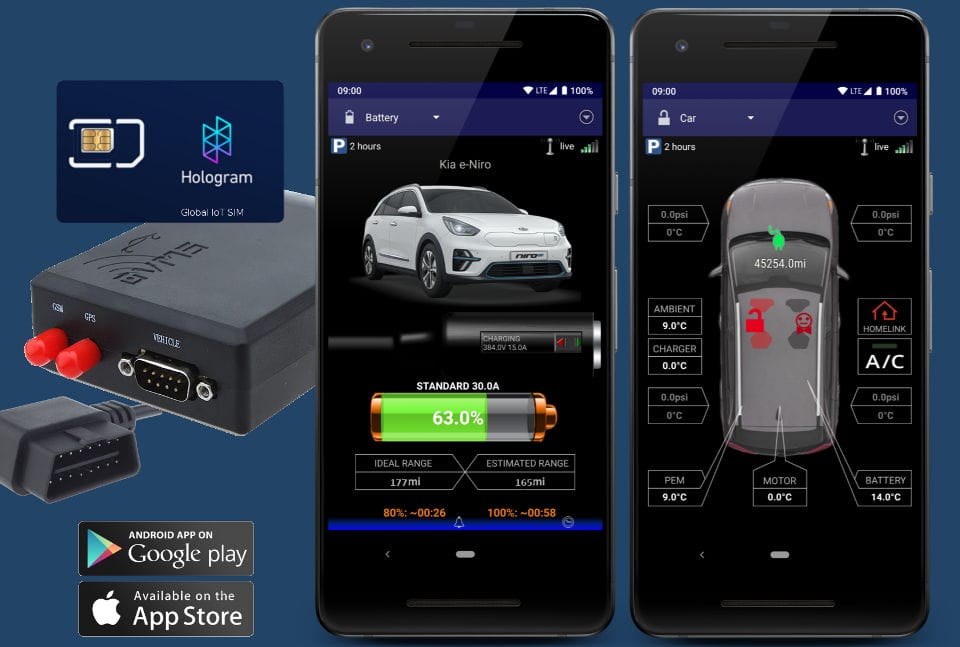
5- Katy OBD, A Lightweight, Dialog-Driven OBD-II Scanner for Car Nerds
If you're into car diagnostics but don’t want to drown in a sea of menus and flashy interfaces, Katy OBD might just be your new favorite tool.
Developed by Chuan Yang , Katy OBD is a simple yet powerful dialog-based OBD-II scanner written in Python. It connects to your car via a Bluetooth OBD adapter and pulls real-time data straight from your vehicle’s ECU, no bloated GUI required.
What makes it cool? Well, it's minimal, terminal-driven design gives it that old-school hacker vibe, perfect for people who love working in the command line or building scripts around live vehicle data.
It reads key metrics like:
- Engine RPM
- Vehicle speed
- Coolant temperature
- Fuel level
- Intake air temperature
- Manifold pressure
- Throttle position
And since it’s built on Python, it’s cross-platform and easy to tweak or extend for your own DIY car projects.
Released under the MIT license , Katy OBD is completely open-source, so you can dive into the code, modify it, or even integrate it into your own automotive tools.
Whether you're logging sensor data for tuning, debugging an issue from the terminal, or just curious what your car’s computer is thinking, Katy OBD gives you raw access without the fluff.
6- Vehical Diagnostic
Vehical Diagnostic is an open-source vehicle diagnostics project that combines low-cost hardware with smartphone sensors and OBD2 data for real-time vehicle monitoring. By integrating accelerometer, GPS, camera, and ECU data, it enables advanced driver behavior analysis, fuel efficiency tracking, and road safety improvements.
It is built on mobile and cloud platforms like AWS, it offers a scalable, affordable solution for car owners, insurers, and fleet managers looking to monitor performance, detect aggressive driving, and even assess occupant safety, all from a smartphone and OBD-II adapter.
7- AndrOBD
This free and open-source app connects to your vehicle's OBD-II system using an affordable ELM327 adapter (via Bluetooth, USB, or WiFi). It offers real-time access to critical vehicle data, helping you monitor performance, identify issues, and even clear error codes, all without leaving your driveway.
You can check about its features, license in here!
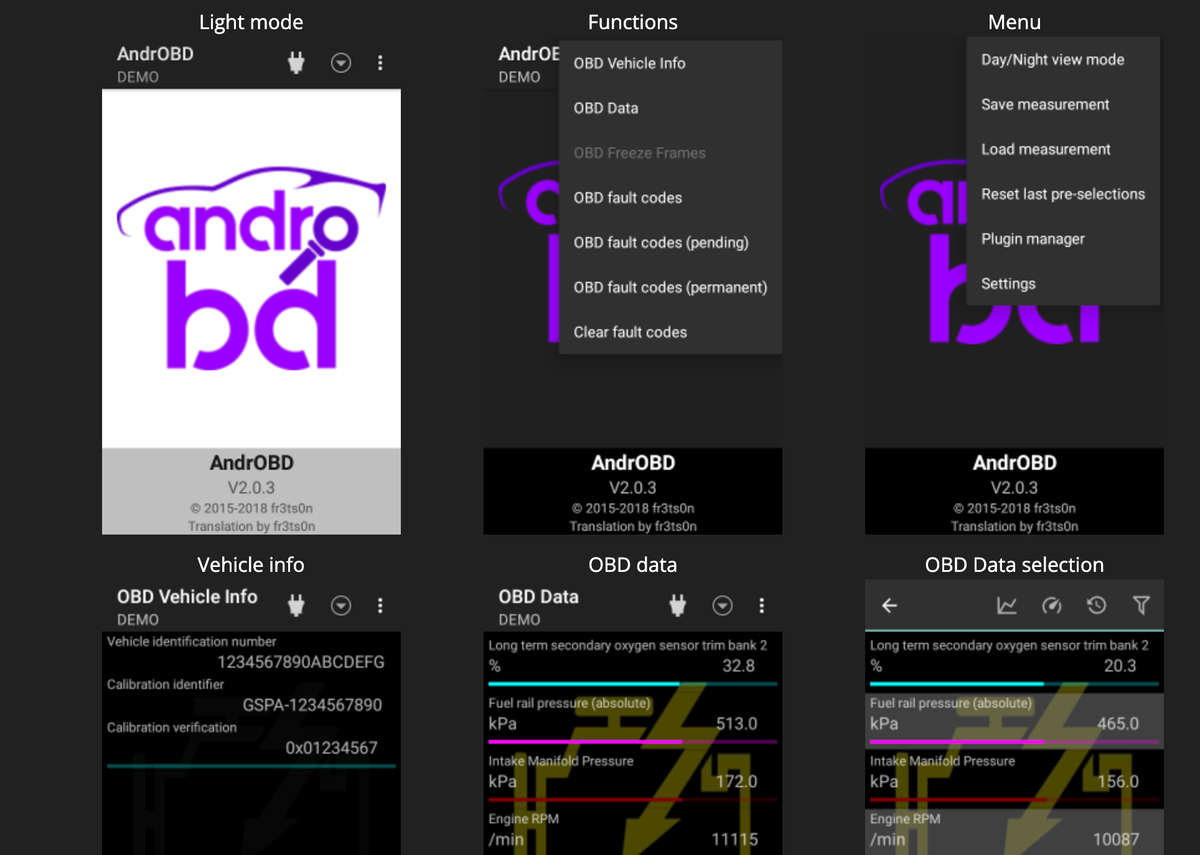
8- DDT4All
DDT4All is an open-source tool for creating custom ECU parameter screens and interfacing with CAN networks via ELM327. Designed for advanced users, it supports deep diagnostics and ECU analysis but requires expert knowledge to use safely.
9- Generic Diagnostic Tool for (J2534 PassThru)

Generic Diagnostic Tool is a free software designed for Car's ECU (Electronic Control Unit) diagnostics, reverse engineering, and hacking. It works with High-Speed and Medium-Speed CAN protocols, supporting major brands like Ford, Mazda, VAG and Volvo.
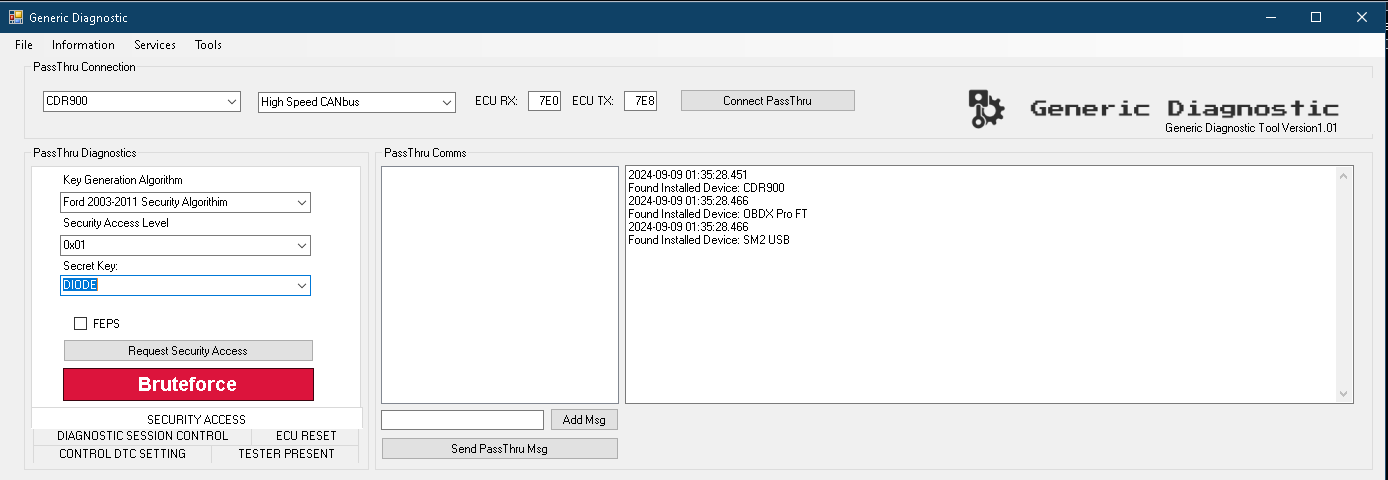
The tool enables users to interact directly with ECUs using KWP2000 and UDS protocols.
Generic Diagnostic Features
- Supports KWP2000 and UDS diagnostic protocols
- Compatible with J2534 PassThru hardware
- Works with OBD2-compliant vehicles
- Allows setting custom ECU RX/TX addresses (e.g., 7E0/7E8)
- Implements key diagnostic services:
- 0x10 Diagnostic Session Control
- 0x11 ECU Reset
- 0x14 Clear DTC
- 0x18 Read DTC
- 0x22 & 0x23 – DID/PID scanning and memory read
- 0x27 Security Access with bruteforce tool
- 0x3E Tester Present
- 0x85 DTC setting control - Includes CAN sniffer and VIN decoder
- Ability to store and send custom PassThru messages
- Built-in DTC tab for easy fault code reading
- Supports OBD2 services and ECU memory access
- Actively seeking OEM data contributions for expansion
10- OnBoardPi (Raspberry Pi)
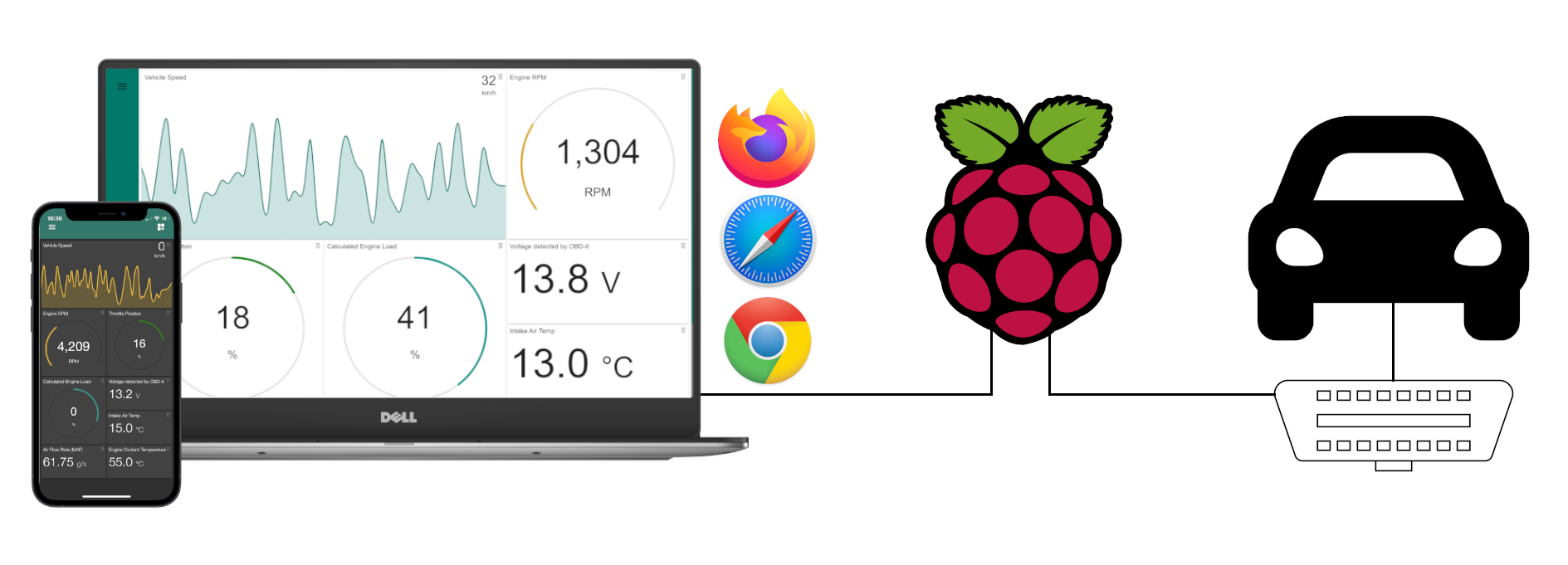
OnBoardPi is a slick, web-based OBD-II diagnostic tool that brings real-time car data to your screen, no matter what 1996 or newer vehicle you're driving. All you need is a Raspberry Pi (or any similar single-board computer), an OBD2 adapter, and you’re good to go.
It pulls live data like RPM , speed , coolant temp , and more, displaying everything in clean dashboards, tables, or interactive charts. Perfect for DIYers, tuners, or anyone who loves knowing what’s really going on under the hood.
And here’s the kicker: OnBoardPi integrates with BlueWave Studio's OpenAuto Pro , injecting values via API so you can run both apps at the same time, giving you even deeper control and visibility into your car’s systems.
11- OBD-Monitor
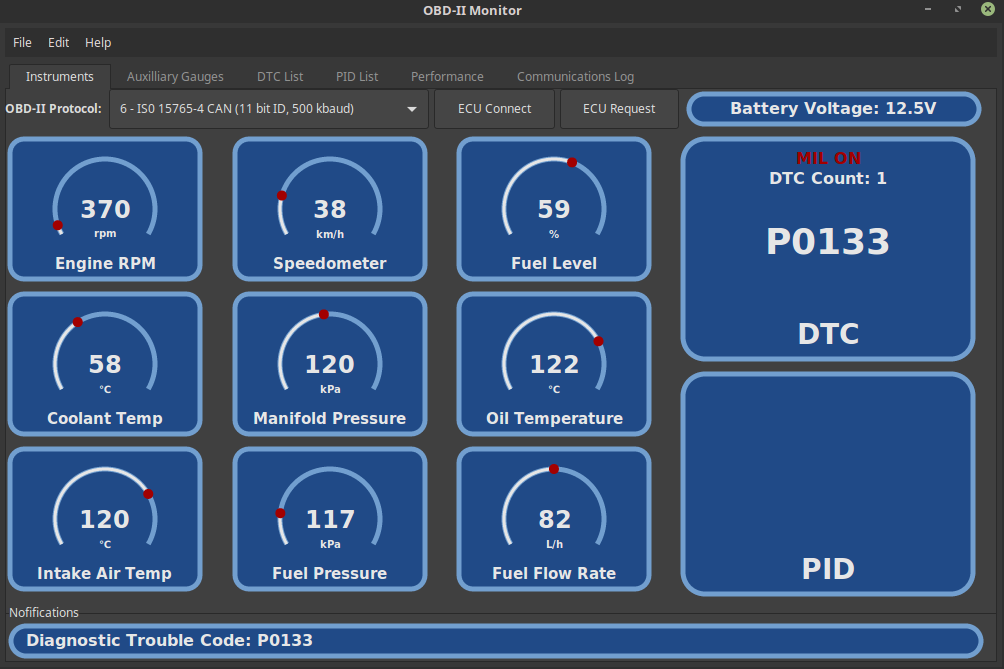
OBD-Monitor is an open-source car diagnostics tool that lets you monitor and analyze real-time vehicle data via OBD-II. Built with GTK+, it works on Linux and Windows, supporting GUI, server, and simulator modes.
It is ideal for developers and DIYers, it includes unit tests, USB-serial interface testing, and flexible build options, making it perfect for ECU analysis, tuning, or building custom automotive apps.
Features of OBD-Monitor
- Real-time OBD-II vehicle diagnostics
- Cross-platform: Linux & Windows support
- Open-source GTK+ GUI interface
- Modular design: GUI, server, and simulator mode
- Build flexibility:
make all,gui,server,utests,ftests,stests - Supports USB-to-Serial OBD interfaces
- Includes loopback testing for USB-serial ports
- Ready for ECU monitoring, logging & reverse engineering
- Based on Sparkfun & Altronics hardware kits
- Great for DIY car hacking, tuning & telemetry projects
12- OBDium
OBDium is a sleek, open-source OBD-II diagnostic tool built in Rust for speed and reliability. It connects to ELM327 adapters , delivers real-time sensor data , decodes fault codes , and even deciphers VINs offline, no internet needed.
The app is so lightweight, fast, and extensible, it's the right choice for car enthusiasts, DIY mechanics, and anyone who loves tinkering with vehicle data without bloated dependencies or external libraries slowing things down.
OBDium's Features
- View Troube Codes: Read diagnostic trouble, & error codes, including Powertrain, Body, Chassis, and Network alongside a description
- Live Vehicle Metrics: Reads and decodes various OBD-II PIDs (engine, fuel, air, exhaust, diagnostics, etc.) with plans for manufacturer specific PIDs soon
- Advanced VIN Decoding: In-depth VIN decoding using a custom parser and SQLite-backed lookups based off of the NHTSA's VPIC MSSQL database
- I/M Readiness Tests: Verify that your car's emissions systems are functioning properly for both compression and spark ignition engines.
- Modern GUI: No more ugly and outdated native applications. Developed with modern web development technologies using Tauri with JS/HTML/CSS
- Cross-platform: Available on any operating system include both Linux and Windows
13- ECU Simulator
This is an open-source project written with Python that works as an OBD-II ECU Simulator!
14- ArduinoHondaOBD
This Arduino project reads Honda OBD codes, translates them to ELM327/ ODB2 PID format, and displays data on an LCD or sends it via Bluetooth to apps like Torque.
The app supports pre-2002 Honda ECUs for diagnostics, datalogging, and trip computer functions.
15- Python-OBD
Python-OBD is a lightweight Python library for real-time OBD-II sensor data via ELM327 adapters, ideal for Raspberry Pi and DIY car diagnostics projects.
16- OOBD - The Open Onboard Diagnostics Toolkit
OOBD (Open On Board Diagnostics) is a collection of open Source software and hardware for OBD Vehicle Diagnostics.
17- SavvyCAN
SavvyCAN is a powerful, free, and open-source CAN bus analysis tool for car hackers, reverse engineers, and EV enthusiasts. It supports real-time data capture, DBC decoding, graphing, scripting, and works with various hardware like GVRET and Arduino.
It is the right tool for diagnosing, tuning, or modifying modern vehicle systems.
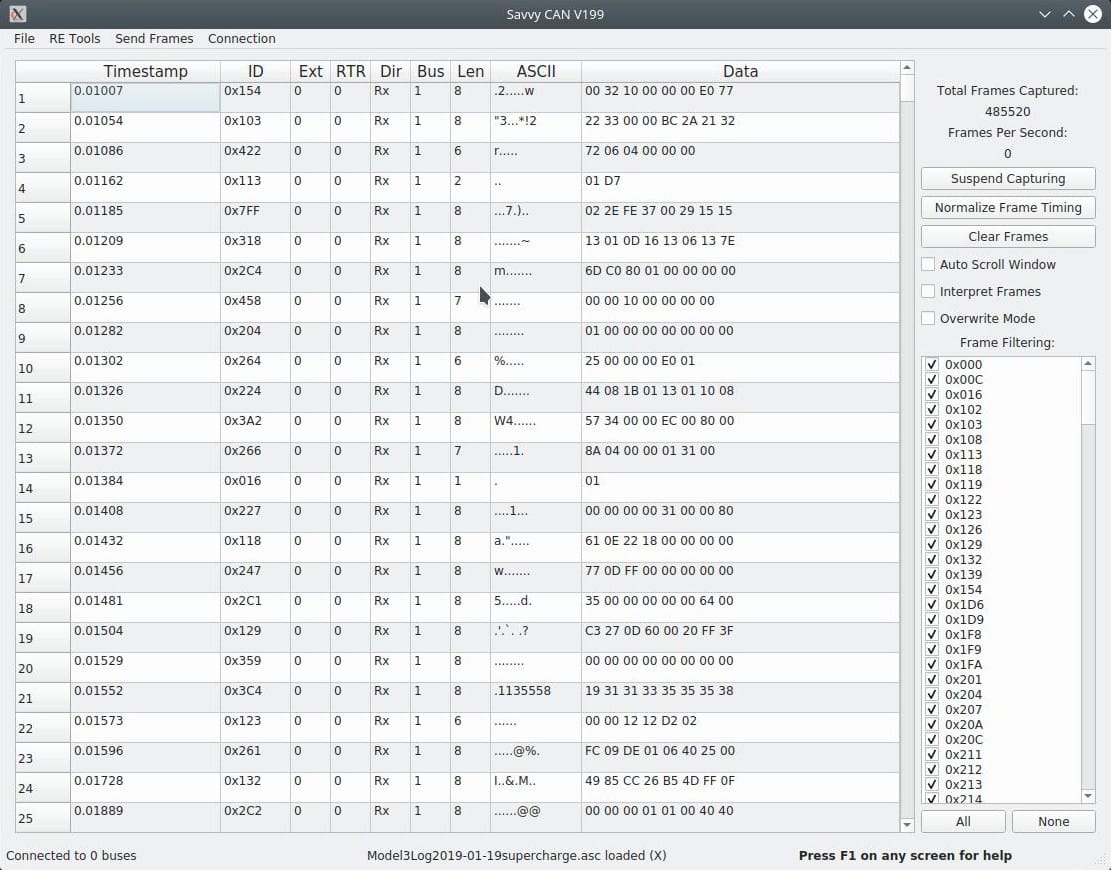
18- UNVEILING AUTOMOTIVE INSIGHTS: AN OBD II DATA ANALYSIS

This open-source app enables you to analyze automotive performance data using OBD-II metrics like engine temperature, RPM, and speed to uncover patterns related to efficiency, overheating, throttle response, and driving behavior, offering insights for diagnostics and optimization.
19- Telemetry OBD Logger
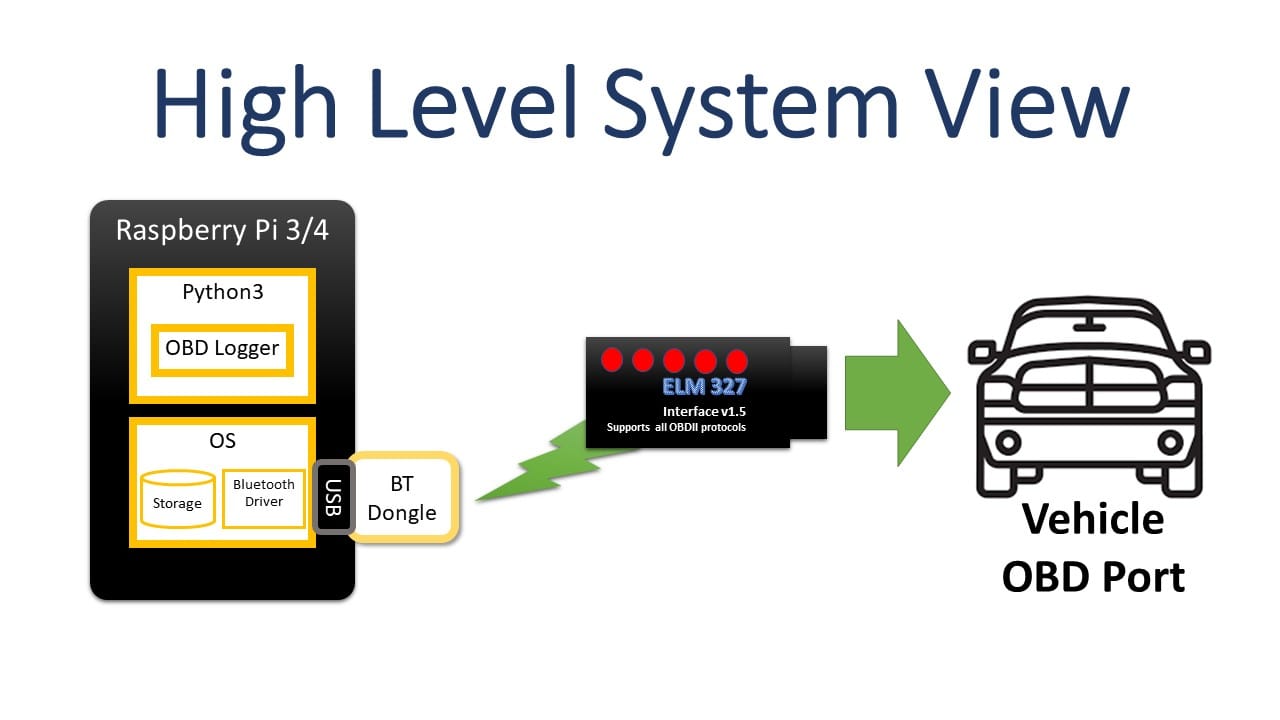
The Telemetry OBD Logger is a Python-based tool that logs vehicle performance data via an OBD interface, storing logs in VIN-named directories.
It is designed for Raspberry Pi with Bluetooth support, it captures real-time diagnostics from multiple vehicles for analysis and tuning.
20- Bluetooth OBD-II Diagnostic Tool (Recommended)

This open-source OBD-II project is a love letter to car hackers and DIYers. It is perfect for tinkerers and hackers who want full control over their car’s systems without expensive hardware.
21- OBD-II vehicle diagnostic scanner (Linux)
Linux port of ScanTool.Net GPL ODB-II tool!
22- Android OBD Reader
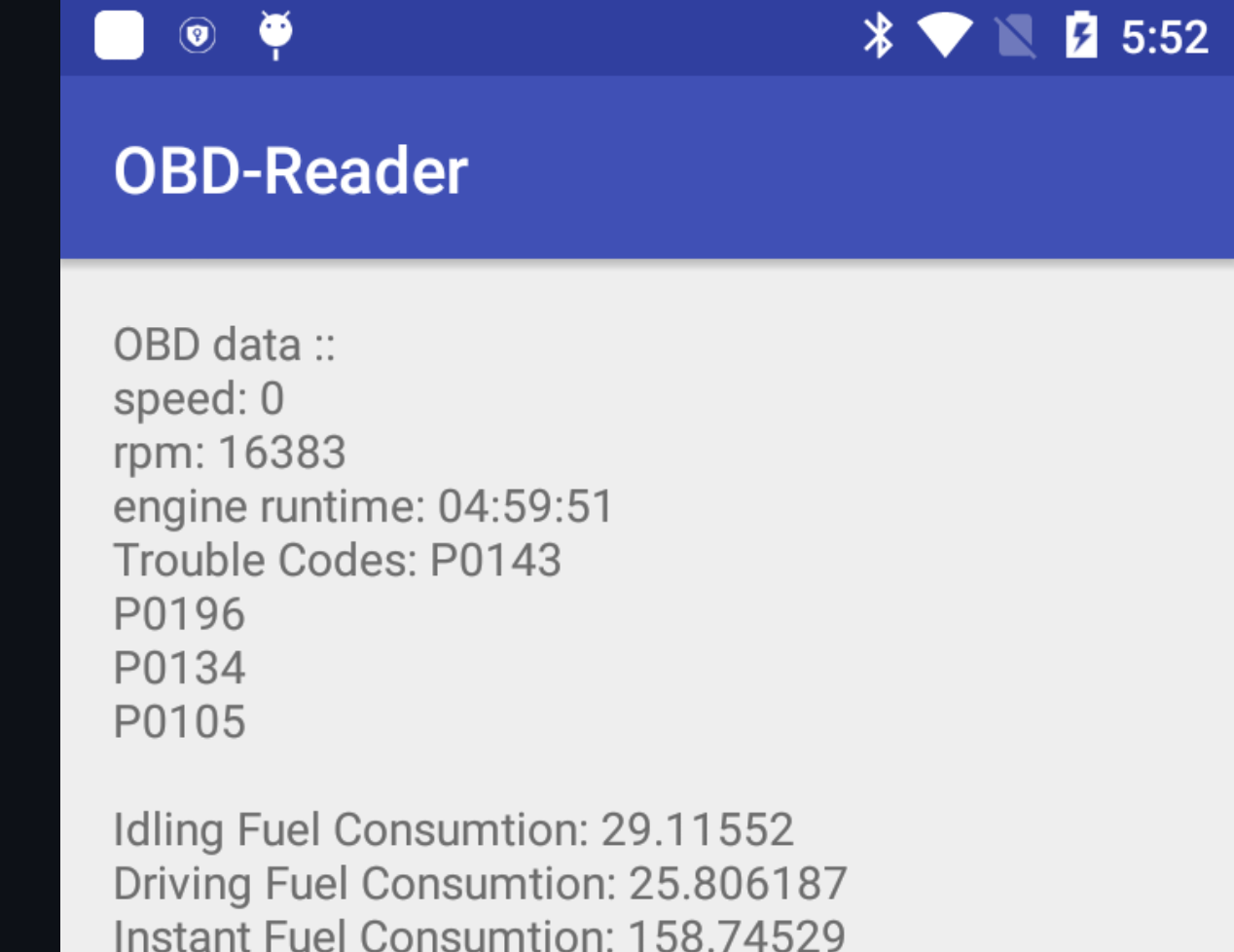
This Android OBD-II library supports standard Mode 01 PIDs, making it easy to read real-time vehicle data like speed, RPM, fuel consumption, and driving behavior, both on mobile and in-car head units.
Developed out of necessity after struggling with poor documentation and connectivity issues using existing libraries like obd-java-api , this tool was built to help others save time when integrating OBD-II diagnostics into car systems or dashboards.
It auto-detects supported PIDs and calculates useful metrics like trip distance, idle time, max speed, rapid acceleration/braking events, and more, It is ideal for car monitoring apps or embedded automotive projects.
23- openOBD: OBD-II Scan Tool
openOBD: OBD-II Scan Tool is a free cross-platform GUI for OBD-II interface device control.
It currently supports ELM327 devices, the app allows you to view and clear error codes, and view live data from the ECU. Packages available for Windows and Linux (deb or rpm)!
It is totally free and open-source that uses GNU General Public License version 3.0 (GPLv3)!
However, note that it is released years ago and did not get updates since 2013.
As we finished our list of the best open-source OBD apps, we highly recommend checking commercial tools and devices for professionals as they are coming with support, warranty and dedicated teams.
This post by support of YekTek.com , the largest distributor in Turkey of OBD and diagnostic devices for cars.
7 FAQs About Using OBD Tuning & Scanner Apps (Including Open-Source Tools)
If you're getting into OBD tuning, car diagnostics, or just want to understand what’s going on under the hood, here are the top 7 questions people ask when using OBD scanner apps, especially open-source ones like AndrOBD, SavvyCAN, PYOBD, Freediag, and DDT4All.
1. Can I damage my car with an OBD scanner or tuning app?
Yes, if you’re not careful. Basic functions like reading and clearing fault codes are safe, but tools that let you modify ECU settings, disable emissions systems, or reflash firmware can cause serious issues if done incorrectly.
Always back up your ECU data before making changes.
2. What hardware do I need for OBD apps?
You’ll need at least an ELM327 Bluetooth adapter to connect to your car’s OBD-II port. Some advanced tools also work with Raspberry Pi, Arduino, or J2534 pass-thru devices for deeper diagnostics or reflashing. For reliability, choose tested hardware over cheap knockoffs.
3. Are open-source OBD apps safe and reliable?
Open-source apps like AndrOBD, SavvyCAN, and PYOBD are great for monitoring and basic diagnostics, many are actively developed and widely used by the DIY community. However, they often lack official support, documentation, and user guidance — so they’re best for users who know what they’re doing.
4. Can I back up or restore my ECU using these tools?
Yes! Many open-source tools support reading and saving ECU firmware, a lifesaver if something goes wrong during tuning. Just make sure you have a clean backup before experimenting with any modifications.
5. Do open-source diagnostic tools work on all cars?
Most OBD-II compliant vehicles (1996+ in the US, 2001+ in Europe) will work with standard OBD apps. But older cars, luxury brands, or certain models may require special protocols (like UDS or KWP2000) which might only be supported in commercial tools or limited in open-source versions.
6. Will using open-source tuning apps void my warranty?
Possibly. If your car detects tampering or unauthorized access to the ECU, it could affect your warranty or insurance claims. Dealers sometimes flag modified ECUs, especially if you're using tools that write directly to the system.
7. Should I use open-source or commercial OBD tools?
Use open-source apps if you're a tinkerer, student, or hobbyist looking to learn or monitor your car for free.
But if you're a pro mechanic, tuner, or someone who needs tech support, stability, and advanced features, go for commercial tools like VCDS, Autel MaxiSys, or Launch X431. They offer better documentation, customer service, and compatibility with more vehicle makes/models.
Final Thoughts
Open-source car diagnostic apps are powerful, flexible, and free, perfect for learning and light tuning. But they come with risks: limited support, complex interfaces, and potential for mistakes.
For real-world use, especially in professional environments or newer vehicles, pairing with reliable hardware and commercial software gives you peace of mind, better results, and full tech support when things go sideways.
